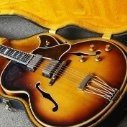Thailand: Regime is not 'Democratically Elected'
-
Recently Browsing 0 members
- No registered users viewing this page.
-
Topics
-
-
Popular Contributors
-
-
Latest posts...
-
25
Crime Canadian Man Caught Smuggling Heroin Hidden in Women’s Handbags at Airport
There is no limit to the stupidity of people. They are like the universe; never ending. -
14
Body Donation/Disposal of Farang Senior Upon Death
You can donate your body to Chulalongkarn University, where it will be used for research and/or instruction for medical students. There are some exclusions though: body too decayed, rabies, HIV, Hep B and C, active TB, advanced state of cancer, radioactive implants within last six months, death due to accident where possible legal issues are involved. You'll have to prearrange or have your executor coordinate for travel of your body to the University. They'll have 20 days to do what they will, after which they'll cremate whatever is left and provide ashes to whomever you stipulate. Only cost is the freight to get you there. This is about as no frills as it gets in Thailand. You'll have to go to Chula University to register, but only takes a few minutes to do so. Make sure to bring your passport. For more info call them at 02-256-4751 or 02-256-4281. -
7
Community Communities Across Eight Mekong Provinces Raise Alarm Over Worsening River Crisis
News? This is not news!! People in Cambodia and the Mekong Delta regions of southern Viet Nam have been raising alarms for decades, ever since China and Laos started building dams on the Mekong. Thai people along the Mekong have been expressing growing concerns of the last 30-odd years. -
156
BBC in Trouble again.
The BBC has been unscrupulous for years. They are as 2 faced as the government. Greedy and no integrity. -
32
Report Bangkok Building Collapse Blamed on Design Flaws, Says PM
There was several factors that brought down this building but they have not mention the main cause CORRUPTION !! -
65
Report Cannabis Chaos: 12,000 Thai Shops Face Closure Under New Rules
Do your friends have to lock their medicine cabinets before you come over? 😜
-
-
Popular in The Pub







.thumb.jpeg.d2d19a66404642fd9ff62d6262fd153e.jpeg)






Recommended Posts
Create an account or sign in to comment
You need to be a member in order to leave a comment
Create an account
Sign up for a new account in our community. It's easy!
Register a new accountSign in
Already have an account? Sign in here.
Sign In Now